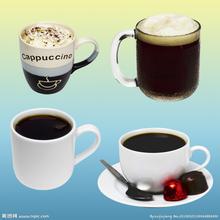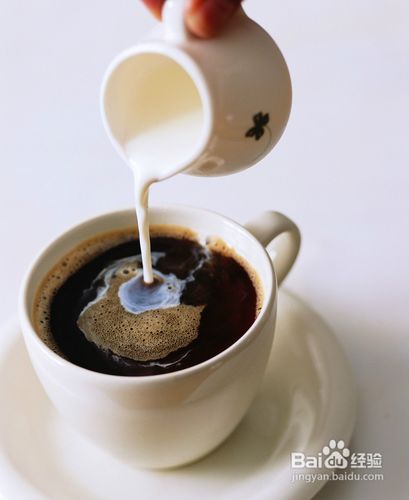Introduction to the planting environment of Bolivian coffee with dry flavor of almonds
(1) the Movement for Socialism (Movimiento Al Socialismo): founded in 1995. The ruling party. The emerging leftist political party is a "widely participating national democratic force". Oppose neoliberal economy and economic globalization. The largest political force in the Bolivian parliament. The leader of the party is President Juan Evo Morales Juan Evo MORALES Ayma.
(II) Bolivian Progressive Plan-National Solidarity Party (Plan Progreso para Bolivia-Convergencia Nacional, PPB-CN): the largest opposition party, formed in September 2009 by the merger of the Bolivian Progressive Plan, the Bolivian Autonomous Party and the Nationalist Revolutionary Movement, led by Manfred Reyes Villa (Manfred REYES Villa).
(3) National Unification Party (Unidad Nacional): founded in 2005. Advocate safeguarding the interests of the middle class and the business community. The third largest political force in the Bolivian parliament. The chairman of the party is Dolia MEDINA, the cement magnate.
(4) Social Union Party (Alianza Social): founded in 2005. The opposition party. He advocated purifying and innovating Bolivian politics and bringing hope to the Bolivian people. The party's leader is Ren é JOAQUINO, the party's former presidential candidate and mayor of Porto í s.
(5) the intrepid Party (Movimiento Sin Miedo): founded in March 1999, it was originally the ruling party of the Alliance for the Social Movement, but it broke with the Party in 2010 and became an opposition party. The party occupies the mayors of La Paz and Aururo. The party's leader is Juan Del Granado, the former mayor of La Paz (Juan del GRANADO).
(VI) Poder Democrat á tico Social: f.2005. It advocates reforming the existing economic model, maintaining social stability and promoting the development of production. The leader is former President Jorge Quiroga (Jorge QUIROGA).
Other major political parties are the New Republican Power Party, the Civil Solidarity Union, the Free Bolivian Movement, the left Revolutionary Democratic Party, the "4 / 9" Revolutionary Vanguard Party, the Socialist Party, the Communist Party, and so on. [7]
Political dignitaries
President Juan Evo Morales Juan Evo Morales Ayma. Born on October 26, 1959, in a poor Indian family in the province of Aururo, Bolivia. No higher education. In his youth, he worked as a miner, a baker and a bricklayer. Since the 1980s, he has been actively involved in the work of the coca agricultural trade union organization, and has gradually become the main leader of the organization, and has been elected secretary-general of six coca agricultural trade union federations for nine times in a row. He was elected to the House of Representatives in 1997 and was removed from office in 2001 for leading coca farmers to close roads and march. In 2002, Mozambique formed the Socialist Movement Party and won 35 seats in parliamentary elections, making it the second largest party in the country. Mo ran in the 2002 general election as the leader of the party and entered the second round, but lost by a narrow margin in the parliamentary vote. In the general election on December 18, 2005, Mo won 54% of the vote and was elected president, becoming the first Indian president since the founding of Bolivia. Re-elected president in December 2009 in a general election held under the new constitution, took office on 22 January 2010 and served a term of office until 2015
I remember that the admirable champion bean in 2007 was Coffee Manor, but her score was overtaken by the 2008 champion Cafe de Cordillera, when the international judges gave it a high score of 92.03. in 2009, Takesi Snow vein Manor got a score of 93.36, surpassing the champion of 2008, and the bidding price was as high as US $35.05. it was the highest bid in CoE national competition in 2009! Osher has been bidding for Bolivia's champion beans for three years in a row. She is really attracted by her delicate floral fragrance, charming sweet vanilla and clean and changeable flavor. In 2010, many factors, Bolivia decided to cancel the national competition, examine this batch of Takesi winning beans, it is mixed feelings, hard-won ah.
Bolivia's high-quality estates, very high altitude, perennial low-temperature environment, so that coffee fruit growth is slow, tight enough, aroma is also charming, floral aroma is obvious, such as careful treatment, cherries with the same maturity, often have a clean and meticulous high-grade taste, this elegant vanilla and honey aromas are very attractive This champion bean has a variety of floral aromas, vanilla and honey that last a long time and wash Bolivia with a cup of water. It is recommended to use 15g powder at 87 degrees water temperature, ratio of water to powder at 1:15, moderate grinding (small Fuji ghost tooth knife 3.54grinding), V60 filter cup, the first injection of 30g water for 25s, injection to 110g water cut off, wait for powder bed water to half, then water injection, slow water injection until 230g water, not in the tail section, extraction time 2Rd 00s.
Flavor: dry aromas of roasted nuts and almonds, soft acidity of oranges and white pomelos on the palate, sweet caramel on the whole, smooth texture of nut milk, cleanliness and balance are also eye-catching. The herbal aroma of Yuyun is also quite fascinating.
Altitude: 3812m
Producing area: Lake Titicaca
Baking degree: medium baking
Treatment: washing
Variety: iron pickup
Producer: tapping Baigabana small farmers
Flavor: dry aroma of roasted nuts and almonds. Lake Titicaca, with oranges and pomelos, is the highest and largest freshwater lake in South America, one of the highest freshwater lakes in the world and the highest navigable lake in the world. it is the third largest lake in South America (after Lake Maracaibo and Patus lagoon).

Important Notice :
前街咖啡 FrontStreet Coffee has moved to new addredd:
FrontStreet Coffee Address: 315,Donghua East Road,GuangZhou
Tel:020 38364473
- Prev

Panama Rosa Coffee with unique Flavor; introduction to the planting environment of the manor area
Panamanian land use: arable land accounts for 8.9%, permanent pastures account for 20.0%, forests and woodland account for 43.0%, others account for 28.1%; per capita arable land accounts for 0.6 acres. [2] Mineral resources Panama is rich in mineral resources, but it is not exploited much, and the scale of the mine is relatively large.
- Next

Introduction to the crisp and refreshing taste of Kenya Jinchu Coffee growing Environment
According to local media reports, major coffee producing areas such as Nieli and Migoli have negotiated agreements with buyers from China. According to the agreement, local coffee farmers will sell coffee directly to Chinese merchants at a price of about 250 shillings ($2.90) per kilogram. Some people with vested interests have protested against this practice. Two weeks ago, some Western companies warned coffee people through the media, saying that such as
Related
- Detailed explanation of Jadeite planting Land in Panamanian Jadeite Manor introduction to the grading system of Jadeite competitive bidding, Red bid, Green bid and Rose Summer
- Story of Coffee planting in Brenka region of Costa Rica Stonehenge Manor anaerobic heavy honey treatment of flavor mouth
- What's on the barrel of Blue Mountain Coffee beans?
- Can American coffee also pull flowers? How to use hot American style to pull out a good-looking pattern?
- Can you make a cold extract with coffee beans? What is the right proportion for cold-extracted coffee formula?
- Indonesian PWN Gold Mandrine Coffee Origin Features Flavor How to Chong? Mandolin coffee is American.
- A brief introduction to the flavor characteristics of Brazilian yellow bourbon coffee beans
- What is the effect of different water quality on the flavor of cold-extracted coffee? What kind of water is best for brewing coffee?
- Why do you think of Rose Summer whenever you mention Panamanian coffee?
- Introduction to the characteristics of authentic blue mountain coffee bean producing areas? What is the CIB Coffee Authority in Jamaica?

